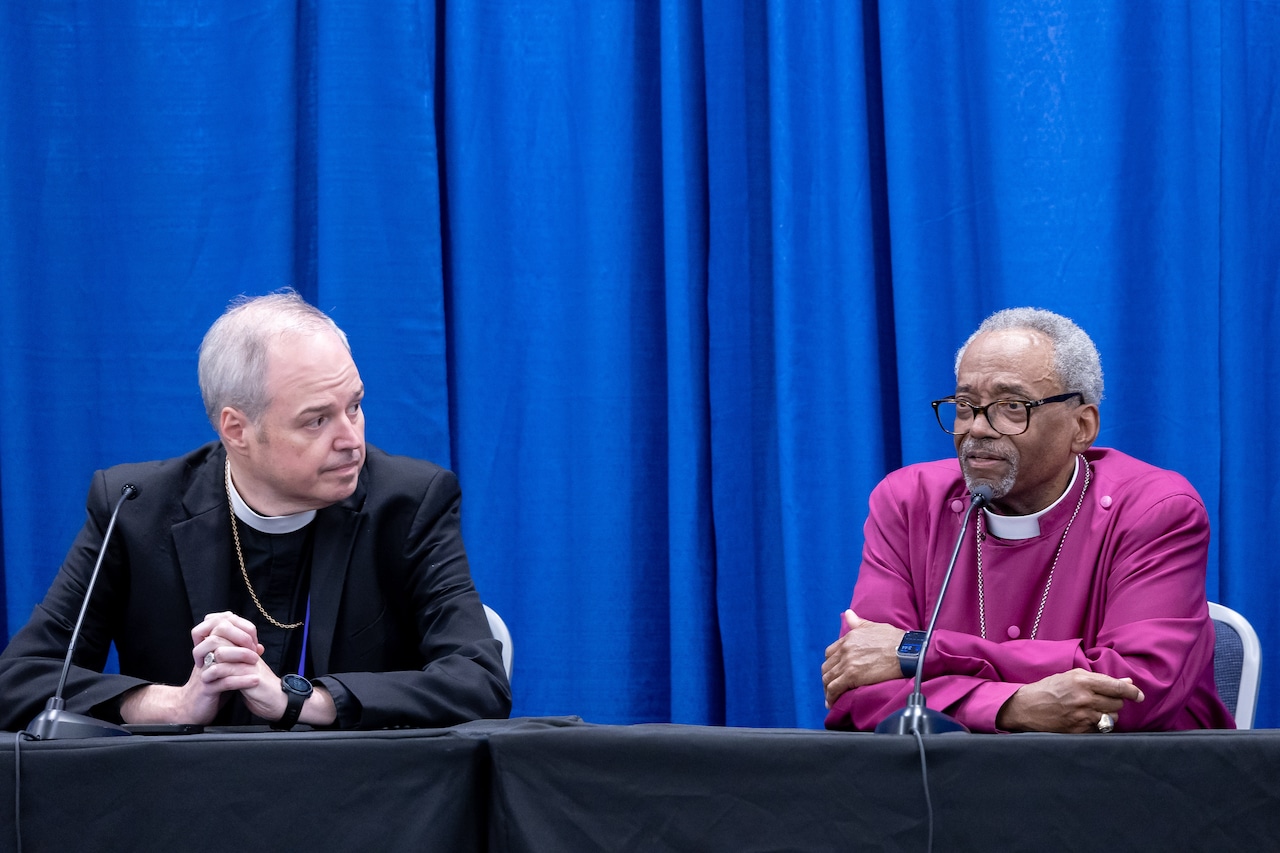Episcopal priests and United Methodist ministers may be just a few years away from full recognition in each others’ churches and the ability to swap pulpits.
It will be at least three years before clergy for the denominations will have that kind of interchangeability.
The Episcopal Church General Convention, which concluded June 28 in Louisville, approved a resolution “affirming the goal of full communion between the Episcopal Church and the United Methodist Church.”
Full communion means each denomination fully embraces the other as part of the universal Christian church and recognizes their sacraments as authentic; clergy from one can serve in the others church.
“There are some big hurdles that would have to be covered, because there is so much variability in Methodist theology that it’s hard,” said Bishop Glenda Curry, head of the Episcopal Diocese of Alabama. “A lot of work to do.”
The United Methodist General Conference that ended May 3 approved a plan for full communion with Episcopalians, pending approval by the 2027 Episcopal Church General Convention.
The Episcopal Church voted last week to “celebrate with The United Methodist Church the historic and sweeping changes to the Book of Discipline and Social Principles made at their 2024 General Conference regarding the ‘ordination and marriage of homosexual persons,’ advancing towards our common goals of an open and inclusive church for all God’s people.”
The United Methodist Church voted at its recent General Conference to approve same-sex marriage and LGBTQ ordination, stances already held by the Episcopal Church.
The Episcopal Church holds its governing General Convention every three years.
By the next one in 2027, the church plans to work on a “Principles for the Orderly Exchange of Ministers” document and a plan for liturgical recognition and reconciliation of clergy orders with United Methodists.
The Episcopal Church also elected its next presiding bishop, Bishop Sean Rowe, who will take office on Nov. 1, after the nine-year term of Presiding Bishop Michael Curry expires on Oct. 31.
“He has a sense of urgency,” said Bishop Glenda Curry of Alabama. “He sees the culture changing. He sees the need to try new things.”
The Episcopal Church’s embrace of the United Methodist Church comes after a major schism in Methodism, in which more than a quarter of United Methodist churches and more than half in Alabama disaffiliated.
A statement released May 14 by the United Methodist Council of Bishops made it clear that United Methodists are not currently in communion with Global Methodist churches that disaffiliated with United Methodists.
“Holding Scripture’s call for Christian unity before us, we lament that some have chosen to leave The United Methodist Church,” wrote Bishop Tracy S. Malone, president of the Council of Bishops.
“At the same time, we must clarify that the Global Methodist Church has no official relationship with The United Methodist Church and has not been endorsed by any of its official bodies. There has been no request for such a relationship and, as such, there is no communication taking place to negotiate a common understanding of our two bodies.”
